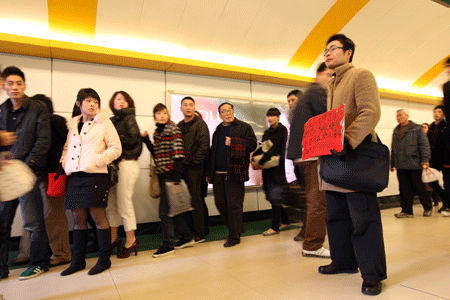Buying Mr Right
With 90 percent of marriage agents reportedly facing bankruptcy in the city of Hangzhou, business at the Golden Ideas marriage agency is going from strength to strength.
At first glance, it's hard to see why: The membership fee is 7,000 yuan ($1,047).
The secret of success at Golden Ideas is its niche market: assisting bachelors to marry up the social ladder to one of the affluent daughters of Xiaoshan, a suburban district of the Zhejiang capital city whose economy ranks among the best of its kind nationwide.
Registered suitors not only come from all over China, but all over the world.
"Most of the suitors have at least a university education," said Li Jiyan, founder of Golden Ideas in 1998.
"Some come with master's degrees or even a doctorate. We even get phone requests from overseas Chinese living in the UK, US, Japan, Australia and the United Arab Emirates who are interested in our service as well."
Information about the prospective husband is listed on the website including age, height, diplomas, career, salary and marital history. Although well-educated, most would-be husbands earn only a few thousand yuan a month, Li explained.
"But the real estate price in Xiaoshan is more than 20,000 yuan a square meter. It's really difficult to support a family on their own."
Xiaoshan is by no means a pioneer of this unusual marriage arrangement. Marrying a "princess" - dao chamen - has millennia of tradition and now appears to be making a comeback all over the country.
Rising inequality is not the cause, believes a political science professor of Nankai University in Tianjin.
"If you compare Xiaoshan with some northeastern rural areas where [income inequality] is high, you'll see the phenomenon doesn't happen there at all," Liu Ji says.
"Values are the most important factor. Zhejiang is more open and the people there tend to accept new things quicker."
The quality of suitors has improved at Golden Ideas over the last 10 years.
There used to be savvy migrant workers looking for a golden ticket to comfy Xiaoshan.
They were not well educated or boasting any special expertise, Li says. Nowadays it's white-collar workers working in the high-tech industries, teachers and public servants, according to Li.
 0
0 








Go to Forum >>0 Comments